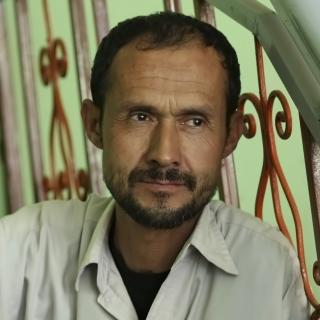Ghulam Maqsood was born on 1 October 1967 in Dehdadi district, Balkh Province, northern Afghanistan. He attended Shahid Balkhi High School from 1974 to 1985 after which he joined the ICRC’s Mazar-i-Sharif subdelegation as a driver in May 2002. Ghulam spent three years with the ICRC but was made redundant in early 2005 during a round of staff cuts. He then found work as a driver with the United Nations Office for Project Services (UNOPS) where he remained until the end of 2007. The following year he rejoined the ICRC.
Ghulam was delighted to be back. He loved his work as an ICRC driver and being part of the subdelegation’s transport team. He took his responsibilities seriously: passenger safety was paramount, as were the subdelegation’s security procedures. Ghulam’s passion for his role translated itself through hard work and his readiness to help others both inside and outside the transport team. Everyone had a good word to say about him.
On 8 February 2017, Ghulam was part of an ICRC convoy delivering livestock feed when it was attacked by unidentified armed men near Sheberghan, Jawzjan Province, northern Afghanistan.
Ghulam, who was 49 and married, was killed along with five other colleagues: Ghulam Murtaza Omar, communications officer; Khalid Jan, economic security field officer; Ghulam Rasoul, driver; Sayed Shah Agha, driver; and Najib Sahebzada, field officer. During the same incident, two other colleagues were abducted; they were held captive for seven months.
It is one of the worst tragedies in the history of the ICRC.
Speaking after the killings, Director of Operations Dominik Stillhart condemned what he described as a “horrific, senseless act” that had devastated so many lives and shaken the ICRC to its core.
“Alongside the profound sorrow that I feel, I am also filled with anger and outrage that someone would so brutally take the lives of our colleagues – colleagues who were dedicated to helping others. Nothing can justify their murder,” he said.
